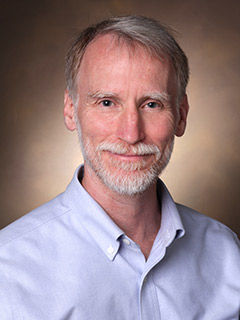2012 New Century Scholars Research Grant
Trying (Too) Hard to Hear

We all know how we feel after a long, mentally demanding day. We're tired. We slow down. It becomes more difficult to focus on simple tasks. We're beat, worn-out, drained. We might find it hard to concentrate on things going on around us. But for most healthy individuals without hearing loss, given a rest, a short break, or a cup of coffee, the feelings of fatigue tend to pass with minimal impact on our quality of life.
This isn't the case for many people with hearing loss. For these individuals, the simple act of listening, especially in noisy settings, can be mentally taxing and exhausting. The impact of this more severe, recurrent fatigue can be persistent and negatively affect quality of life. These significant issues are what motivated Ben Hornsby to begin programmatic research in this area.
These issues also concern the ASHFoundation, as evidenced by its awarding Hornsby a 2012 New Century Scholars Research Grant to investigate why people with hearing loss struggle to understand speech, to recognize the personal costs of these difficulties involved in spoken word recognition, and to begin to discover how to alleviate them. The grant allowed Hornsby to study individuals with normal hearing in order to develop a paradigm to produce listening-related fatigue so that, ultimately, its effects on those with hearing loss could be better understood.
As part of this research program, Hornsby and colleagues developed a cognitively demanding speech task using sentences from the Coordinate Response Measure (CRM) corpus. Participants listened to two sequential CRM messages, such as "Ready Charlie go to blue five now," followed by "Ready Ringo go to red two now." Following the second message participants would answer a question about information contained in one of the messages (for example, "What color was Charlie?"; the answer would be "Blue" in this case). To answer the question, participants had to listen to both messages, hold key information from both in memory, process the question, and then respond by using a mouse to select the correct answer. Successful completion of the task required sustained information and effort, key components of fatiguing situations.
A primary goal of the ASHFoundation-funded work was to identify test conditions that were efficient and effective for eliciting listening-related fatigue in normal-hearing listeners. To this end the researchers systematically varied the difficulty of the task, by testing at multiple signal-to-noise ratios, and the duration of the task (from 20 minutes to one hour). Fatigue resulting from the sustained speech-processing task was assessed using subjective and behavioral measures obtained before and after completing the task.
The work funded by Hornsby's ASHFoundation grant has proven to be a springboard to the investigation of related areas of research. For example, Hornsby, currently an associate professor of Hearing and Speech Sciences at the Vanderbilt University School of Medicine, has expanded his research to include qualitative methods (for example, focus groups and interviews) to gather information about listening-related fatigue from the perspective of the individual, including adults and children as well as parents and teachers of children with hearing loss. This work is instrumental in a project seeking to develop a scale to quantify listening-related fatigue in people with hearing loss as well as those with language and communication disorders. "My hope," says Hornsby, "is that a scale designed to detect listening-related fatigue will allow researchers and clinicians to identify those most affected by, or at risk for, this type of fatigue and, in the long term, provide effective interventions to reduce its consequences. In addition to expanded qualitative work, he is also seeking converging evidence—behavioral, subjective, electrophysiological—to support his endeavors.
Hornsby's ASHFoundation grant has led to recognition and additional funding. He is principal investigator on an R21 grant from the National Institutes of Health as well as co-principal investigator on two Institute of Education Services grants looking at fatigue in children and developing a fatigue scale for children.
"Listening-related fatigue can negatively affect the quality of life for people with hearing loss," says Hornsby. "Even in individuals with good speech understanding or those with specific language impairment, fatigue can be highly detrimental. I'm hoping that improving our understanding of the mechanisms and processes involved in listening-related fatigue will help us identify ways to ease the problem. I'm honored that the ASHFoundation believed that my work could make a difference."
View More Recipient Spotlights